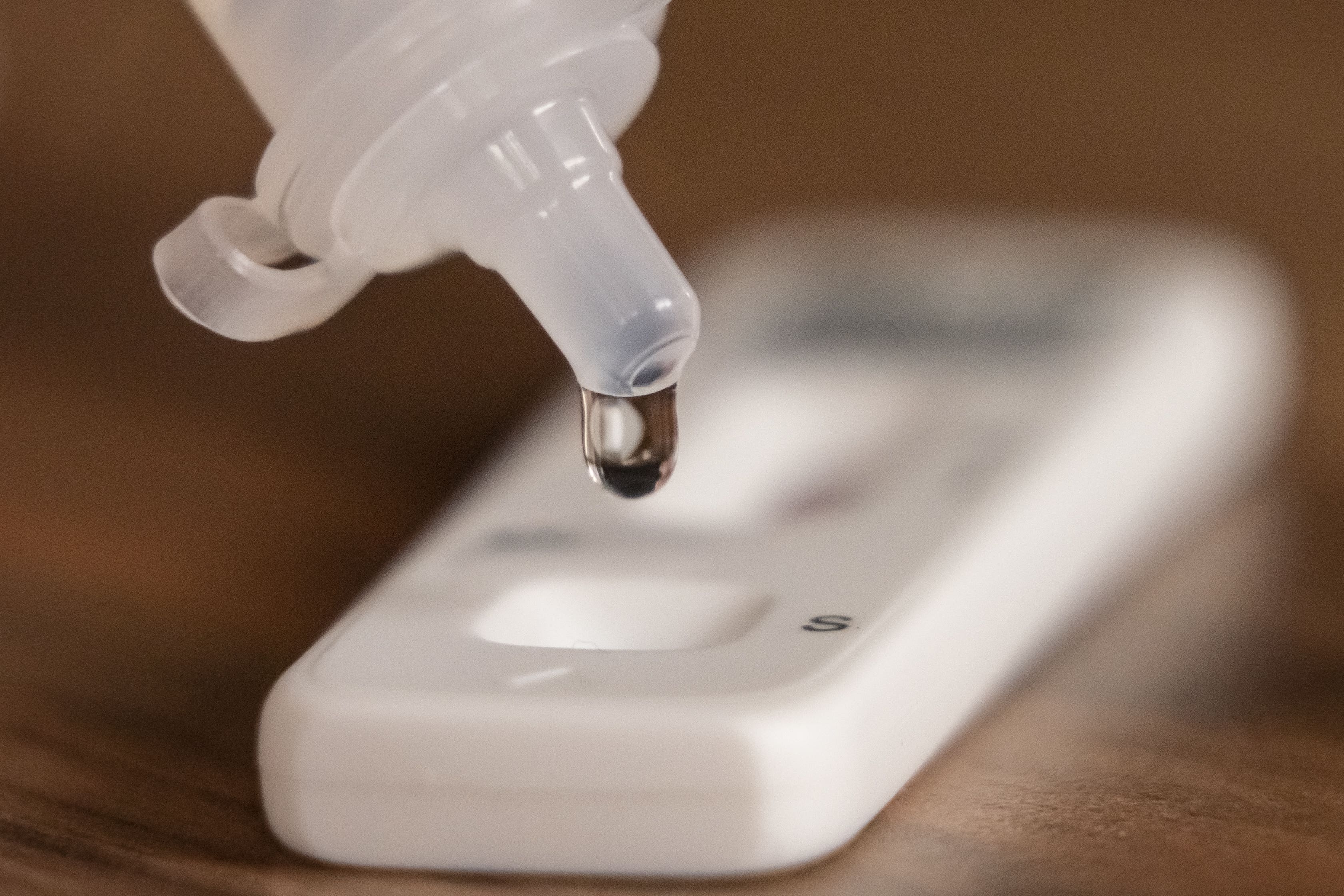NHS can recover with effort and resources, surgeon tells Scottish Covid inquiry
Mike McKirdy, president of the Royal College of Physicians and Surgeons of Glasgow, was speaking to the inquiry on Wednesday.

Your support helps us to tell the story
From reproductive rights to climate change to Big Tech, The Independent is on the ground when the story is developing. Whether it's investigating the financials of Elon Musk's pro-Trump PAC or producing our latest documentary, 'The A Word', which shines a light on the American women fighting for reproductive rights, we know how important it is to parse out the facts from the messaging.
At such a critical moment in US history, we need reporters on the ground. Your donation allows us to keep sending journalists to speak to both sides of the story.
The Independent is trusted by Americans across the entire political spectrum. And unlike many other quality news outlets, we choose not to lock Americans out of our reporting and analysis with paywalls. We believe quality journalism should be available to everyone, paid for by those who can afford it.
Your support makes all the difference.The NHS can recover from the Covid-19 pandemic if it has enough effort and resourcing put into it, a leading clinician has told an inquiry.
Addressing the Scottish Covid-19 Inquiry, Mike McKirdy, president of the Royal College of Physicians and Surgeons of Glasgow, said he was optimistic the NHS could recover from the pandemic in its current form, if its capacity to deal with the treatment backlog can be increased.
Mr McKirdy said the treatment backlog that arose during the pandemic had resulted in a situation that looked to some people like a “problem which feels too big to solve”.
He added: “I fear there is now, after the pandemic, a loss of faith in the ability of the NHS to deliver services.”
We know that it can be restored, it will just take a lot of effort and it will take some time
When asked whether this loss of faith would have occurred without the pandemic, Mr McKirdy said although NHS waiting lists across all four nations had been steadily increasing since 2010, without the pandemic he did not think things would be as bad as they are now “because we had a complete loss of capacity to deliver planned care for those without urgent (needs) for a period of six, 12, nearly 18 months.
“To take that out a system which is usually working as close to capacity as is possible, it’s not possible to restore that quickly.”
However, he encouraged people to remain optimistic about the ability of NHS to overcome the challenges it faces post-pandemic and said: “I do think it is possible for us to restore that model.
“We know that it can be restored, it will just take a lot of effort and it will take some time.
“But the way of restoring the NHS to the position it was in prior to the pandemic is to increase the capacity of our service to deliver for the patients who are waiting.
“And that will take capacity and money and resource, but it will also take leadership and willingness and to some extent, sadly, patients’ patience.”
He added: “I would encourage people … not to lose faith in the capacity for that to happen. It’s not that the model of delivery is wrong, or the funding model is wrong, or any of the other things we sometimes hear commentators suggest.
“It may be that simply this is a system that doesn’t yet have the capacity to deliver that catch-up.”
During his evidence to the inquiry, the cancer specialist also described having to rapidly adapt long-standing medical processes and procedures in the early stage of the virus, including what treatments could be given, and how staff could interact with patients.
He also said there was a six-month pause in breast cancer screenings done by his team in the west of Scotland, but the service has now caught up.
He said: “We had to change what we normally would have done, so we changed the protocols by which we would normally have given care.”
He also described the impact on patients and staff of having to wear PPE and maintain social distancing, and said that there was a “sense of anxiety” among clinical staff in the early stages of the pandemic due to a lack of understanding of how the virus spread, or of who had it.
At one point, he described the particular difficulty of having to break bad news to cancer patients over the phone, or in socially-distanced settings where patients were alone rather than accompanied by a family member or friend.
He said: “With the telephone all we have is our speech and listening. We don’t have any sense of how the patient is looking, what their comprehension is of what we’re saying to them, their level of fear and anxiety about what we have said, whether something needs to be repeated.”
“You’re working rather literally in the dark because you can’t see that patient.”
The inquiry was established to discover the facts and learn the lessons of the strategic devolved response to the Covid-19 pandemic in Scotland, covering the period January 1 2020 to December 31 2022.
It continues before Lord Brailsford in Edinburgh.